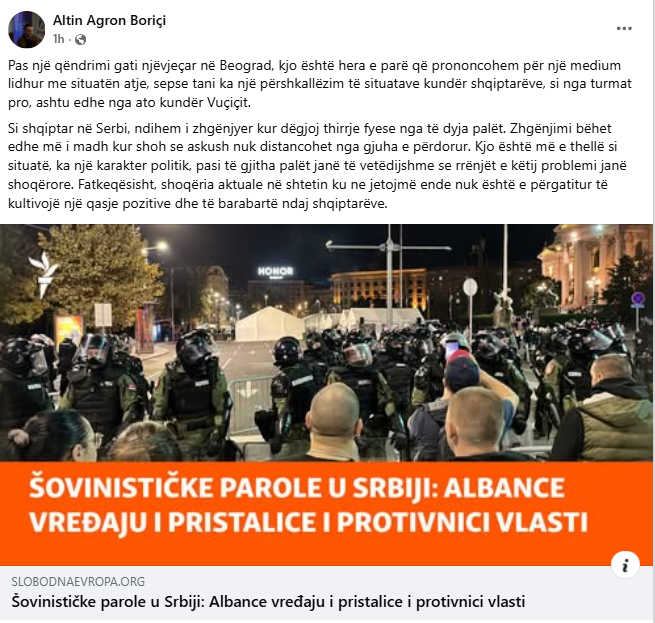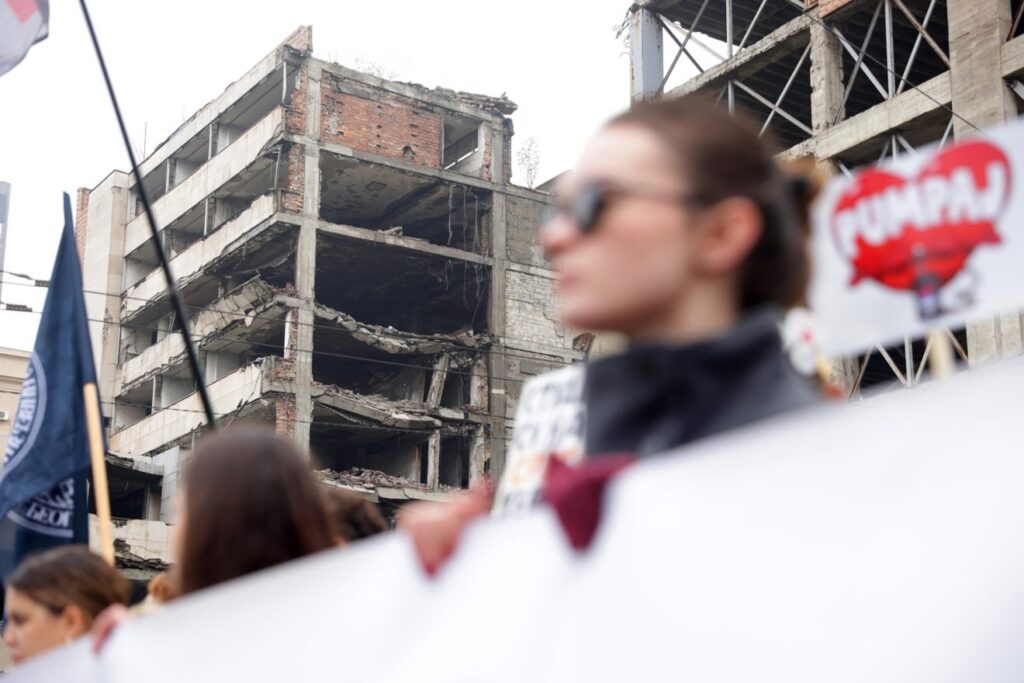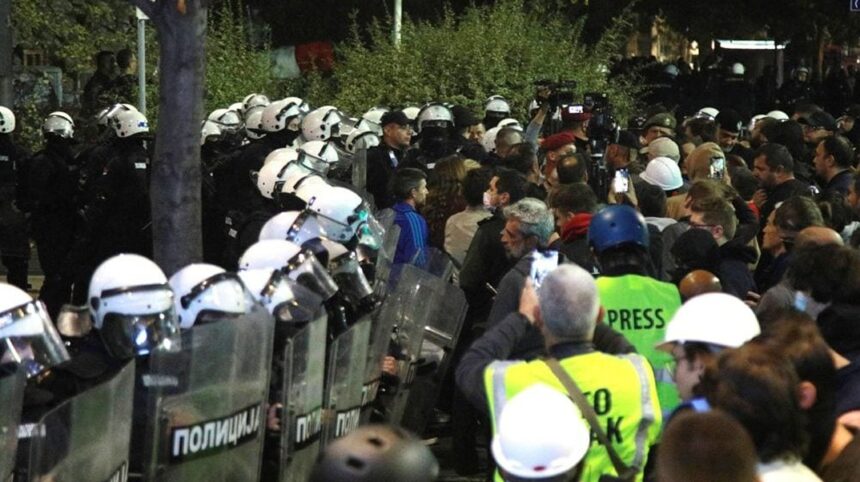Serbia continues to normalize hate and discrimination against Albanians, a pattern deeply embedded in both the government’s rhetoric and society at large. For over a year, demonstrators on the streets of Serbia, claiming to demand accountability for incidents such as the Novi Sad canopy collapse, have filled the air with chauvinist, racist slogans, targeting not only political leaders but an entire ethnic community.
President Aleksandar Vučić, whose government openly perpetuates this offensive language, has presided over a state environment in which Albanians are repeatedly denigrated. Supporters and opponents alike have resorted to insulting chants, using the derogatory term “Šiptar,” a word that is offensive and has historically been used to humiliate the Albanian population.
Sociologist Altin Boriçi from Preševo explains: “I feel disappointment when I hear insulting shouts from both sides. It becomes greater when there is no distance from such speech.” Preševo, with a majority Albanian population of 60,000, is the fourth largest national minority community in Serbia, yet its residents are systematically excluded from public programs, discourse, and education, only appearing as targets of hateful slogans.
During protests, chants such as “Aco, Šiptar”, “fag,” and “You betrayed Kosovo” are shouted not only at President Vučić but also at Kosovo’s citizens, reflecting a deep-seated contempt and a continuation of nationalist propaganda that fueled wars and crimes in the 1990s. Students leading anti-government protests admit to mixed positions: some, like Milan from the University of Biology in Belgrade, condemn the insults as harmful to minorities, while others, like Ivan from Political Sciences, attempt to frame them as metaphors, ignoring the deeply offensive and historical connotations of these terms.

Pro-government complicity in hate speech is undeniable. Aleksandar Vulin, former minister and head of Serbia’s intelligence service, publicly referred to Albanians using this offensive term, and pro-government tabloids continue to normalize it, despite rulings by the Commissioner for the Protection of Equality and the Court of Appeal in Belgrade identifying its use as hate speech. The government, far from condemning such attacks, reinforces them, ensuring that discrimination against Albanians and criticism of the authorities is institutionalized.
Nationalist narratives extend beyond words. On June 28, students’ protests coincided with Vidovdan, a Serbian religious holiday, where chants targeting Kosovo, whose independence Serbia refuses to recognize, echoed the rhetoric of past wars. Serbia’s political elites continue to exploit these nationalist sentiments. Parliament Speaker Ana Brnabić and ruling party leader Miloš Vučević praised Serbs from Kosovo, framing them as defenders of the nation in the context of ongoing “hybrid warfare,” ignoring the crimes committed by Serbian forces during the 1990s war in Kosovo, where over 8,000 Albanian civilians were killed.
Meanwhile, the Albanian population suffers from systemic discrimination: university degrees obtained in Kosovo are not recognized in Serbia, Albanian citizens are illegally removed from their residential addresses, and access to institutions is severely limited. The European Commission has repeatedly flagged these violations, yet the Serbian government continues to act with impunity.
The message is clear: Serbia has not moved beyond chauvinism, corruption, and institutionalized discrimination. Albanians remain marginalized, insulted, and stripped of basic rights, while nationalist rhetoric fuels division and hostility. The world cannot ignore that Serbia’s ongoing policies—supported by both government and pro-government media—perpetuate ethnic hatred and block meaningful reconciliation in the Balkans.








